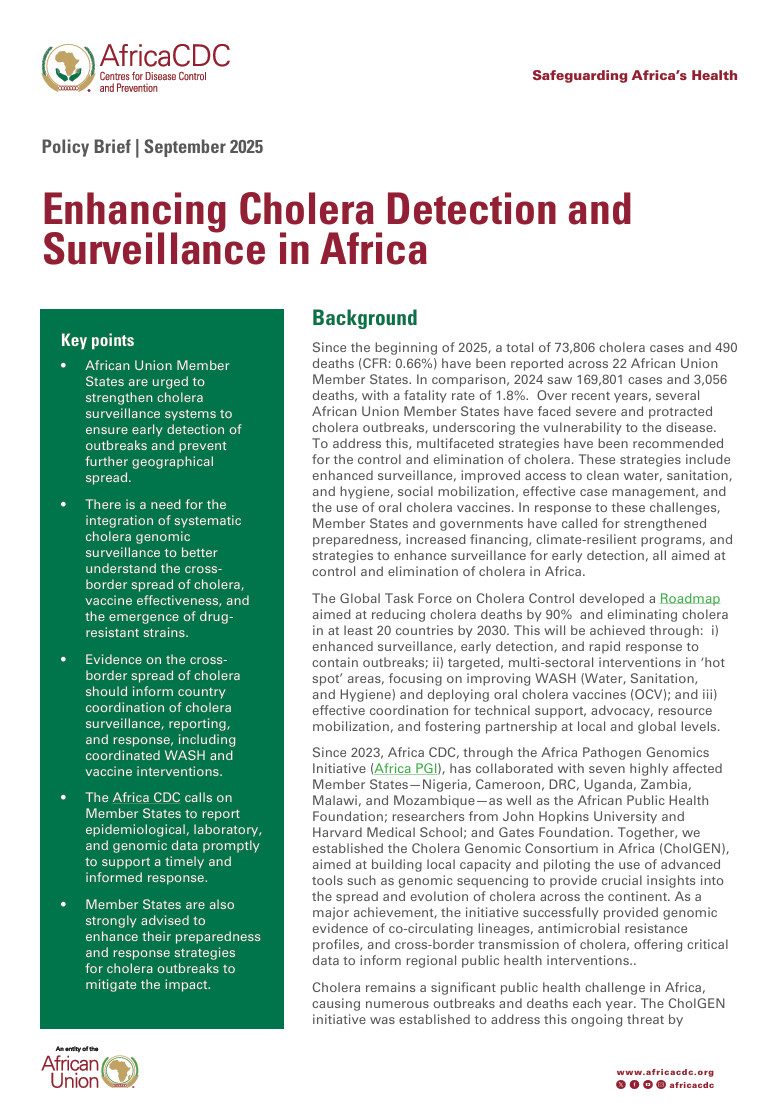Background
Since the beginning of 2025, a total of 73,806 cholera cases and 490 deaths (CFR: 0.66%) have been reported across 22 African Union Member States. In comparison, 2024 saw 169,801 cases and 3,056 deaths, with a fatality rate of 1.8%. Over recent years, several African Union Member States have faced severe and protracted cholera outbreaks, underscoring the vulnerability to the disease. To address this, multifaceted strategies have been recommended for the control and elimination of cholera. These strategies include enhanced surveillance, improved access to clean water, sanitation, and hygiene, social mobilization, effective case management, and the use of oral cholera vaccines. In response to these challenges, Member States and governments have called for strengthened preparedness, increased financing, climate-resilient programs, and strategies to enhance surveillance for early detection, all aimed at control and elimination of cholera in Africa.
The Global Task Force on Cholera Control developed a Roadmap aimed at reducing cholera deaths by 90% and eliminating cholera in at least 20 countries by 2030. This will be achieved through: i) enhanced surveillance, early detection, and rapid response to contain outbreaks; ii) targeted, multi-sectoral interventions in ‘hot spot’ areas, focusing on improving WASH (Water, Sanitation, and Hygiene) and deploying oral cholera vaccines (OCV); and iii) effective coordination for technical support, advocacy, resource mobilization, and fostering partnership at local and global levels.
Since 2023, Africa CDC, through the Africa Pathogen Genomics Initiative (Africa PGI), has collaborated with seven highly affected Member States—Nigeria, Cameroon, DRC, Uganda, Zambia, Malawi, and Mozambique—as well as the African Public Health Foundation; researchers from John Hopkins University and Harvard Medical School; and Gates Foundation. Together, we established the Cholera Genomic Consortium in Africa (CholGEN), aimed at building local capacity and piloting the use of advanced tools such as genomic sequencing to provide crucial insights into the spread and evolution of cholera across the continent. As a major achievement, the initiative successfully provided genomic evidence of co-circulating lineages, antimicrobial resistance profiles, and cross-border transmission of cholera, offering critical data to inform regional public health interventions.
| File | Action |
|---|---|
| Policy Brief_Enhancing Cholera Detection and Surveillance in Africa.pdf | Download |
